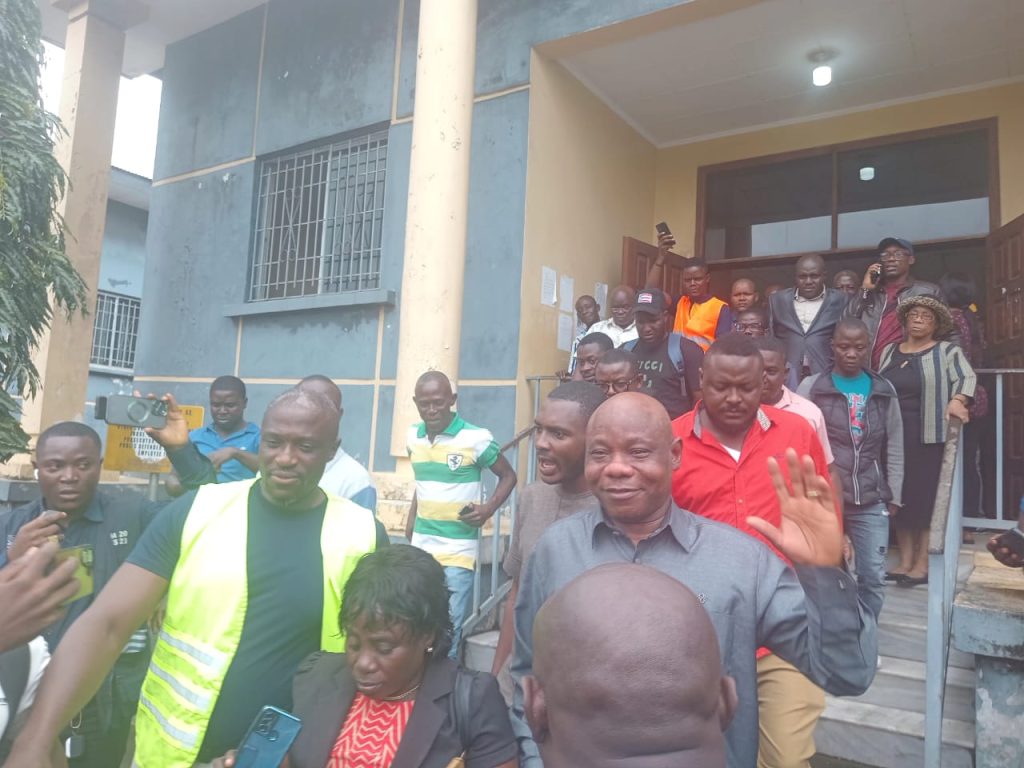This legal saga involves former Liberian Finance Minister Samuel Tweah and other ex-officials facing corruption charges in a Monrovia Circuit Court. The case took a turn when state prosecutors contested the sufficiency of the property bond filed by the defendants, prompting an appeal to the Supreme Court. Justice Yamie Gbeisay, presiding in chambers, initially issued a temporary stay order on the trial proceedings, pending the outcome of a scheduled conference. Following the conference, Justice Gbeisay declined to issue a writ of certiorari, essentially rejecting the prosecution’s request for a higher court review. This decision paves the way for the trial to continue in the lower court.
The crux of the prosecution’s argument revolves around the adequacy of the property bond presented by the defendants, particularly former Minister Tweah. They contend that the bond’s value does not adequately ensure the defendants’ appearance in court and their adherence to the legal process. This challenge to the bond’s sufficiency represents a significant procedural hurdle. The state’s pursuit of this issue indicates their commitment to ensuring a robust and legally sound prosecution. Whether the bond issue will be revisited or further challenged remains uncertain.
The implications of Justice Gbeisay’s decision are twofold. Firstly, the trial against Tweah and the other former officials will proceed in the Circuit Court, allowing the substantive allegations of corruption to be addressed. Secondly, the denial of the writ of certiorari signals a potential shift in the legal strategy of the prosecution. With the Supreme Court avenue seemingly closed for now, the prosecution may explore other legal avenues, such as a change of venue request, as suggested by inside sources. This strategic shift highlights the complexity and evolving nature of the legal battle.
The corruption allegations against Tweah and his colleagues represent a significant test of Liberia’s commitment to tackling corruption within its government. The outcome of this trial holds ramifications for public trust and accountability within the Liberian political landscape. The charges also underscore the challenges faced by post-conflict nations in establishing strong institutions and combating corruption. The intense legal maneuvering around procedural matters, such as the property bond, further emphasizes the high stakes involved in this case.
Looking ahead, the trial in the Circuit Court promises to be a closely watched affair. The prosecution will need to present compelling evidence to substantiate the corruption allegations, while the defense will strive to dismantle their case. The public and international observers will be keenly observing the proceedings, assessing the fairness and transparency of the judicial process. The trial’s outcome will not only determine the fate of the accused but also send a powerful message about Liberia’s commitment to the rule of law and its fight against corruption.
The case also highlights the crucial role of the judiciary in upholding the integrity of governance in Liberia. The Supreme Court’s handling of the writ of certiorari request, and the subsequent proceedings in the Circuit Court, will be scrutinized as indicators of the judiciary’s independence and effectiveness. The outcome of this legal battle will undoubtedly have long-lasting implications for Liberia’s political and legal landscape, setting a precedent for future cases involving high-ranking officials accused of corruption. The trial represents a crucial moment for Liberia’s ongoing efforts to strengthen its institutions and promote accountability within its government.


